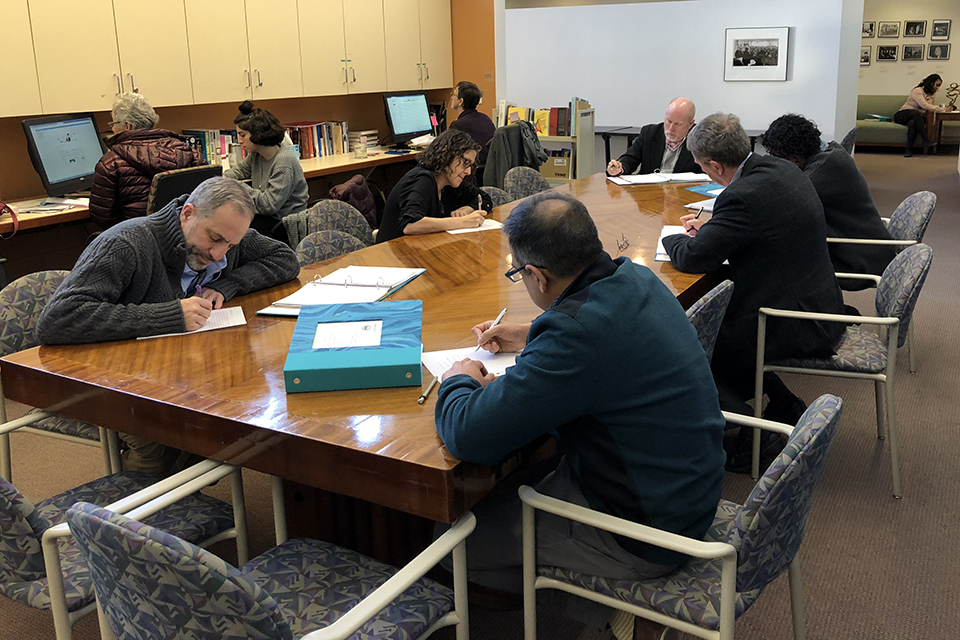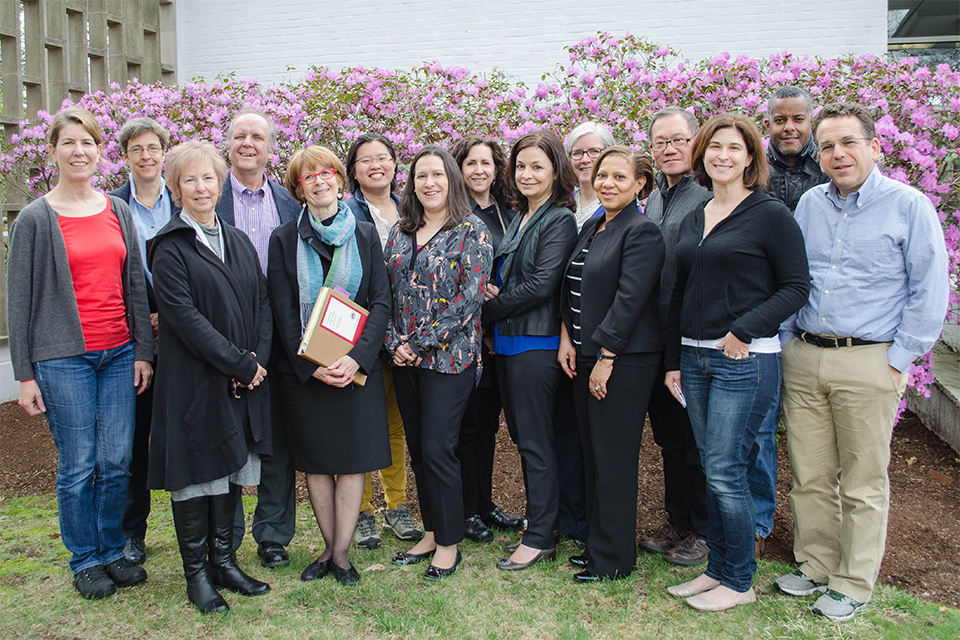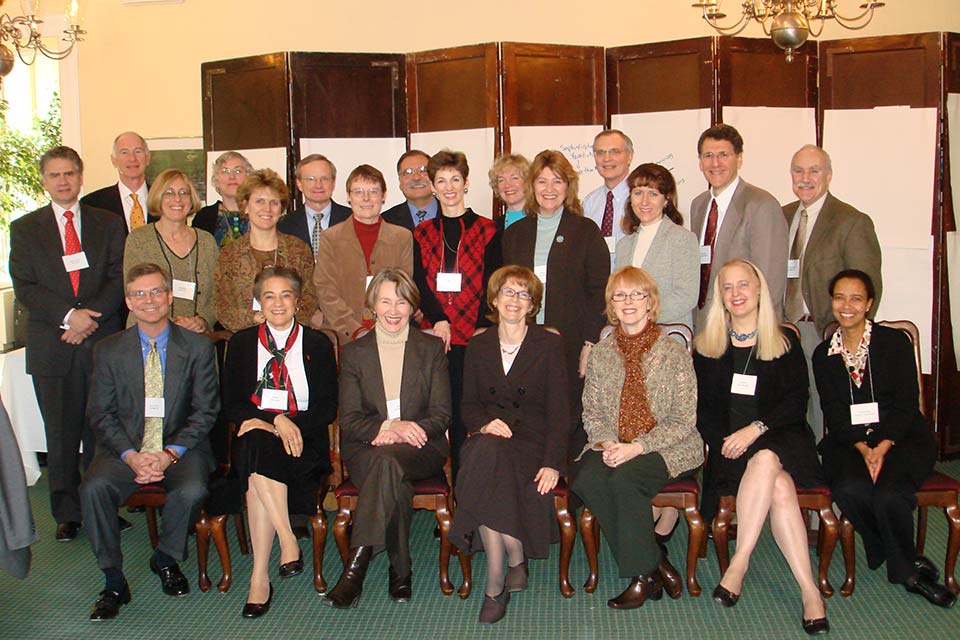Learning Action Network
An overarching goal of C-Change is to create a culture in academic medicine that is inclusive, humanistic, collaborative and supportive of all faculty and trainees.
Most previous efforts to improve life in academic medicine have taken the form of skills-based faculty development programs aimed at enabling faculty to become successful in the existing culture. However, C-Change has taken a different approach. Through the creation of a Learning Action Network (LAN), this initiative sought to change the very culture of academic medicine at its five participating schools. That is, C-Change attempted to influence the values, norms, and actions of member schools.
The Learning Action Network was established as a five-year collaborative learning community of change that linked five medical schools and engaged them in a group process to drive change. It was designed to provide a trustworthy, constructive structure for deepening the conversation and engendering transformative thinking about culture, diversity and organizational change in academic medicine. Activities included in-person biannual meetings of the members; interval work by teleconference; cross-school Innovation Work Groups and C-Change activities initiated at each of the index sites.
The Learning Action Network embodied the culture change we seek in medical schools. The group came  together to explore the culture of medical schools and learn from the intentionally diverse perspectives of its members. The leaders in the group demonstrated an enviable courage in volunteering their schools and in committing their own time to this priority.
together to explore the culture of medical schools and learn from the intentionally diverse perspectives of its members. The leaders in the group demonstrated an enviable courage in volunteering their schools and in committing their own time to this priority.
Four to six members from each school attended the two-day in-person meetings we held twice a year for four years. At the meetings, faculty in a range of positions within their institutions (including deans, department chairs and junior faculty), of different races and genders, both clinical and basic scientists, learned together and from each other. This group pored over the findings from the C-Change interview and survey studies, became familiar with the social science literature on non-conscious bias and marginalization, and incorporated learning about organizational psychology and change from outside medicine.
Group members entered into respectful but energetic dialogue about the meaning of this work, its relevance to their own institutional goals, contexts and resources, and the competing demands of their roles, responsibilities and C-Change goals.

Pololi LH, Krupat E, Schnell ER, Kern DE. Preparing culture change agents for academic medicine in a multi-institutional consortium: the C-Change Learning Action Network. J. Continuing. Education in the Health Professions. 2013;33:244-257
Krupat E, Pololi LH, Schnell ER, Kern DE. Changing the culture of academic medicine: the C-Change Learning Action Network and its impact at participating medical schools. Academic Medicine. 2013;88:1252-1258.“The relationships developed through C-Change have played a large role in my professional growth, success and resilience.”
Past Participant